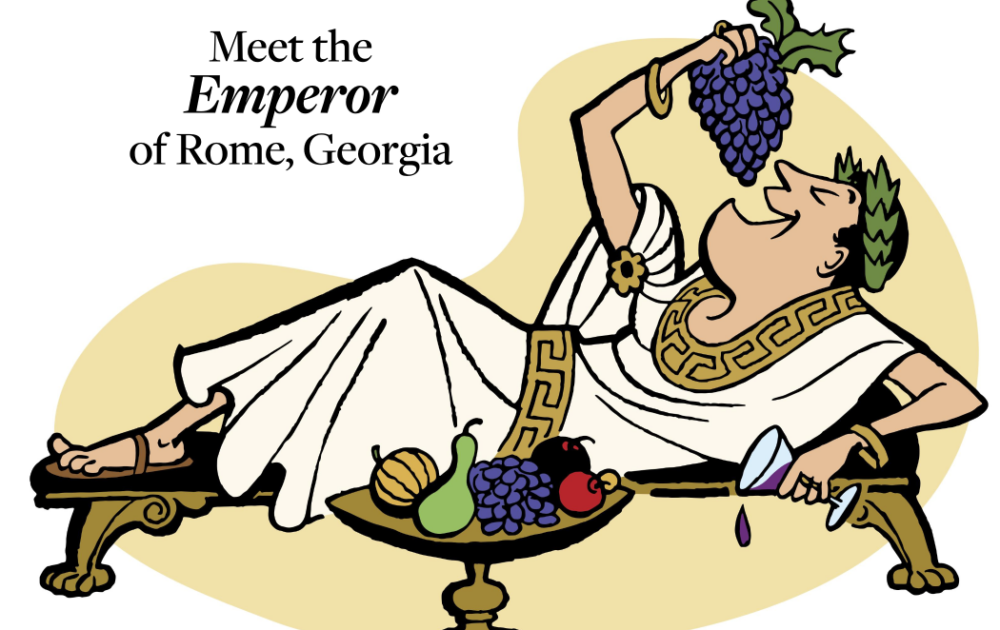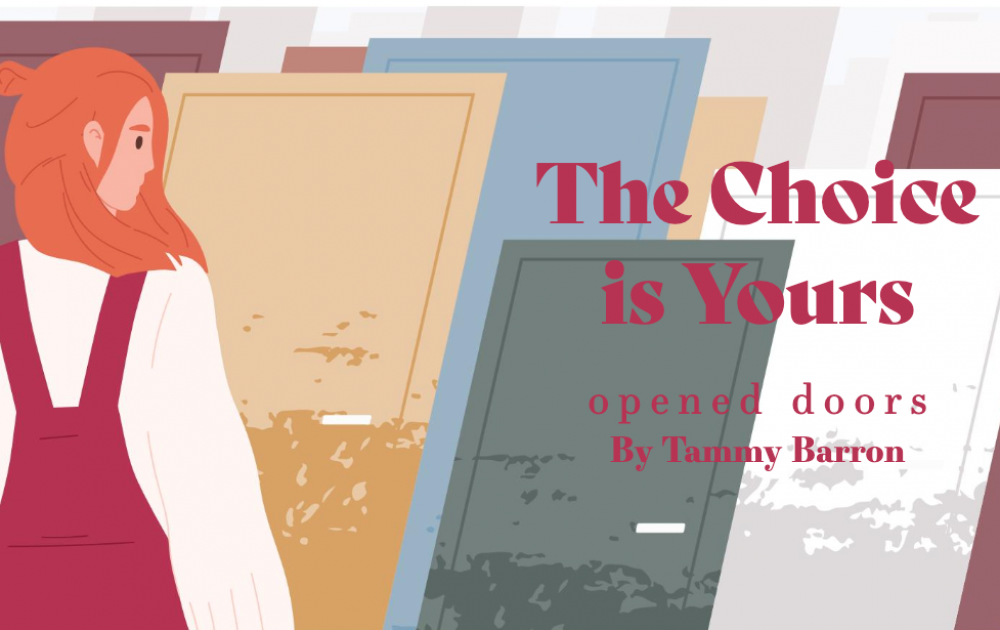
Imagine you are less than 10 years old, living in a community filled with people who are similar to you, supported by a large extended family, enjoying a clear sense of home; when your family decides to move to the opposite side of the country to a place where you know almost no one, and where very few people are like you, to start a new business and a new life. Oralia Limón Caldera did just that and, while it was hard, she has used what she learned to help others navigate new territories, too.
Oralia’s father is one of nine siblings, all of whom were living in Los Angeles, Calif. in the late 1980s when a couple of them decided to move to Rome, Ga. Pretty quickly they moved grandma over and, as Oralia puts it, “Once grandma was brought over that was it for everybody in the family, we had to follow grandma.”
There was only one Mexican restaurant in Rome at the time, so the family saw an opportunity to open a new business, a restaurant called Las Chivas in West Rome. It was very successful, so Oralia’s whole family has been dedicated to restaurant service throughout the years. Her father ran a restaurant for a while, Oralia and her husband, Pascual, ran a restaurant for a while, but as more Mexican restaurants opened up in the area, many of the original siblings and their families moved to Alabama to keep the family restaurant business going strong.
“When I got pregnant with my fourth child, I realized that the restaurant business wasn’t really for me anymore,” Oralia says. “My husband was already going back to doing some construction work, so we decided to take the chance of closing the restaurant.”
Oralia and her husband believe that you have to take risks knowing that you will never know what could have happened if you don’t. “We have learned to live life understanding that you have to take the risks knowing you will live through the lows and enjoy the highs!”
It is that knowledge of the unknowns in life that has guided Oralia in her service to others. Her parents owned one of the first Latino groceries in Rome, La Mexicana on West 3rd Street, and it was not unusual for them to have people come in looking for help with interpretation in order to fulfill basic needs.
“Access to an interpreter is a hundred times better now than it was when I was young,” Oralia recalls. “Back then there were only a handful of people that you knew you could trust to interpret for you. A lot of the medical offices or other places didn’t have interpretation services on-site, so you would have to find someone from your community to come with you.”
Her father became one of the main interpreters for the community, but if he was not available, Oralia would be the one to go. It was not the best circumstance to have a child along to interpret for an adult situation, but there were very few choices at the time. Sometimes a child was the best you could get. When she was older, Oralia went through interpreter training, including medical interpretation, but back then she was learning as she went.
Oralia remembers one time that a woman came into the store who was in a lot of pain and needed to go to the hospital. Her dad was not available so her mother told her she should go; the woman obviously needed help. “It turned out the woman was having a miscarriage,” she says, “And there I was at 13 having to talk to the doctors and help her understand what was happening.” You can’t help but grow up quickly in such situations.
When Oralia’s family moved to Rome the only other Hispanic children she knew at Garden Lakes Elementary were her own cousins. She had left a community where the majority of her peers were people of color, mostly Hispanic, with whom she could easily relate and where Spanish was spoken along with English in the classroom; so it was a real culture shock to come to a place where the only Hispanic person in her school other than her family was the custodian.
“I found out later that he was Puerto Rican, but I looked up to him and I would smile at him with the biggest smile every time I saw him in the hallway because he was the only person who felt remotely familiar to me,” Oralia laughs.
Being put in situations like that, needing to learn and communicate in a place of complete uncertainty, helped Oralia determine at an early age how to work things out for herself, and how important it was to help others with their own struggles. When her brother, Christian Limón, asked her to get involved with their new group, Romanos Unidos, she knew it was another opportunity to support Latino people in the Rome community who needed help navigating an unknown system.
“I was mostly a stay at home mom at the time, caring for my young family after closing the restaurant, but I wanted to help as much as I could,” she says.
I first met Oralia and others in the group when I was invited to one of their events, a “Know Your Rights” workshop to train people on what their rights are if ICE (Immigration and Customs Enforcement) shows up at their door. We English-speaking guests were assigned an interpreter because the entire meeting was presented in Spanish, and I got a small taste of what it is like to try and understand and learn in a situation where you do not know the language. It was a real eye-opener for me.
“We are working to compile a list of services in the area that people might need and to build a list of interpreters to help them access those services,” Oralia explains. The organization also puts on various workshops like the one I visited, including brake light clinics, where people can learn about how, under section 287g of the National Immigration Act, if an undocumented person is pulled over for something like a burned out brake light, the police can arrest them and hold them in jail for ICE. Through the program they help repair brake lights and hand out information on how the system works.
The group also does work in the Rome community introducing people to the Latino culture. For example, at the Winter Wonderland at the Forum last year they held piñata-making classes and performed traditional dances. They are also working with kids in high school and college to build a supportive network at a younger age.
Oralia’s oldest son recently graduated from Coosa High School, just like she did, and in June their family celebrated her daughter’s 15th birthday with a beautiful traditional Quinceañera. When it came time for her children to begin school at her alma mater of Garden Lakes Elementary, she admits that she worried for the struggles they might experience as they entered public school, but knew it was important for them to live their own lives. “Nothing is perfect, but things are definitely much better than they were when I was growing up,” she says. She finds that her kids have a great deal more support now and the community is more welcoming than it was when she was young. But, as things improve, there is always a bit of pushback.
The idea of a world in which all can feel welcome and respected and supported is something that Romanos Unidos will continue to tackle, and Oralia looks forward to continuing to work toward that goal as her children get older. “My children are my focus, and I am doing substitute teaching as well, so I don’t feel that I do a lot,” Oralia says. But, I would argue that she has done and is doing far more than she even realizes towards creating that whole new world of inclusion for her children and for many generations to come.



